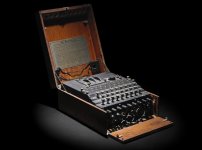Silvesteeer
Member
- Joined
- Dec 28, 2022
- Messages
- 17
Hey everyone! This might be a very stupid and over-simplified question but I have a hard time grasping how exactly LAPD officers communicate between the Tacticals, Simplex, Fallback and Dispatch channels.
Can Officers broadcast emergency messages or is it up to the Dispatchers to forward the help call to other units? In what situations are Tactical channels deployed? When do you have to use fallback channels and when do you tune in to the fallback channels?
If somebody could detail what exactly happens when an example OIS occurs or maybe even a pursuit of a vehicle, I'd really appreciate it.
Sorry if it's a stupid question and thank you for reading!
Can Officers broadcast emergency messages or is it up to the Dispatchers to forward the help call to other units? In what situations are Tactical channels deployed? When do you have to use fallback channels and when do you tune in to the fallback channels?
If somebody could detail what exactly happens when an example OIS occurs or maybe even a pursuit of a vehicle, I'd really appreciate it.
Sorry if it's a stupid question and thank you for reading!


